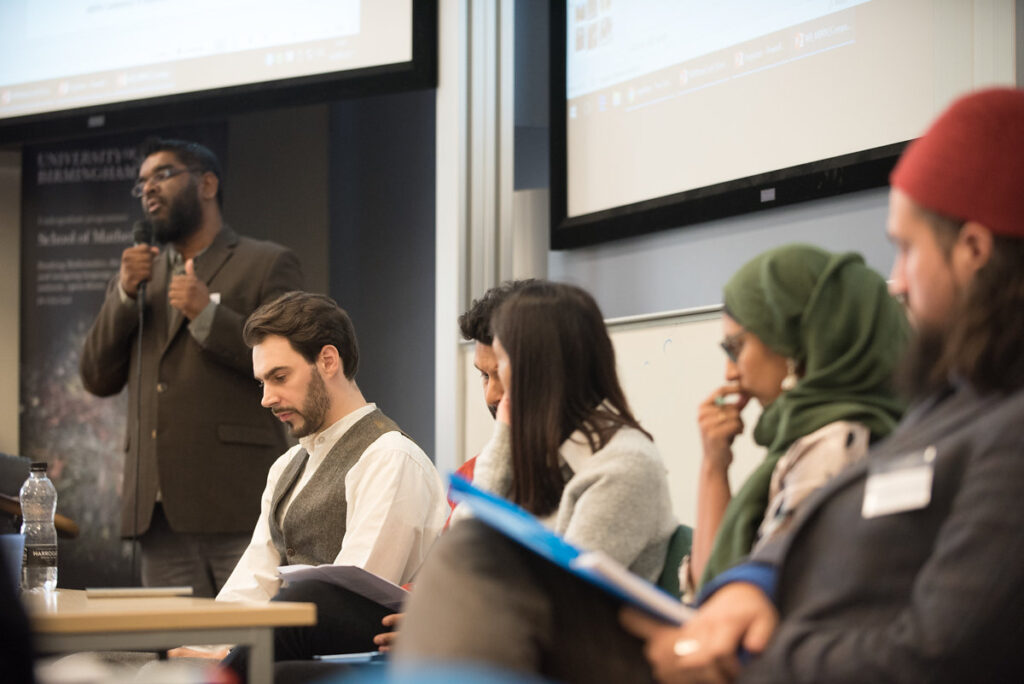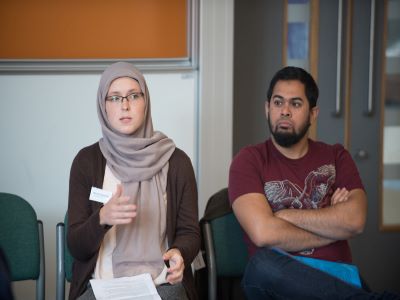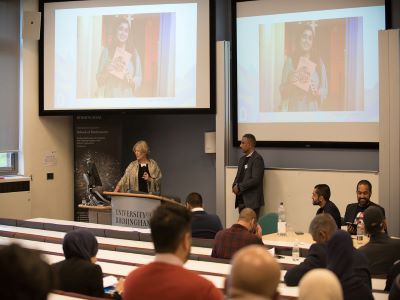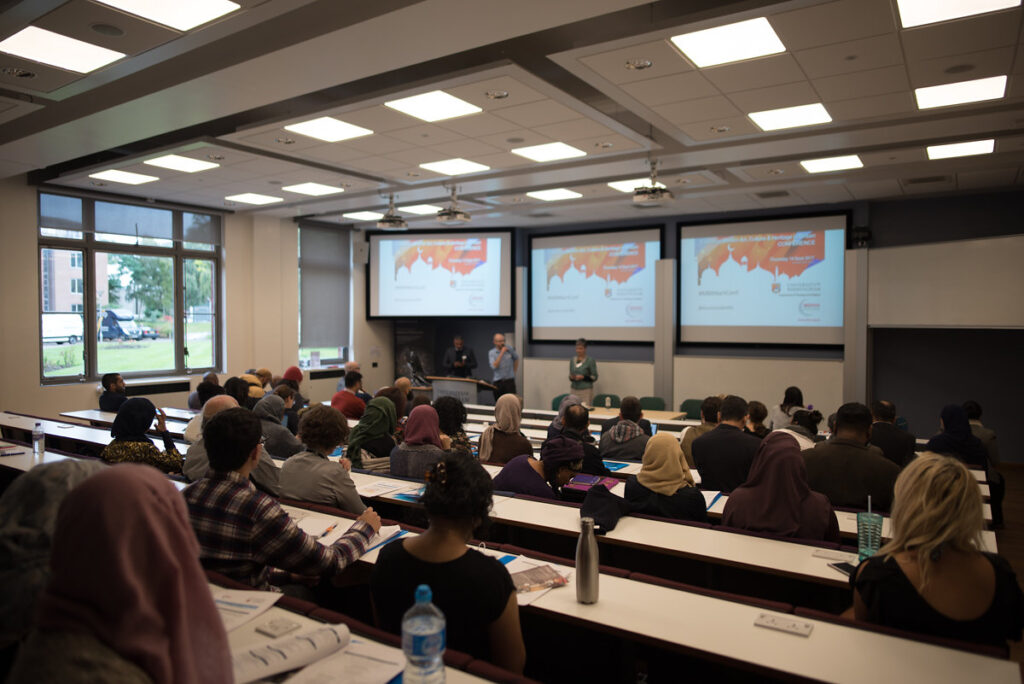Research Spotlight

Research Spotlight
The MBRN would like to highlight new and current research being undertaken by MBRN members.
This spotlight page is to promote research being conducted by MBRN members and is updated monthly.
Research Spotlight: September 2021

Project: Understanding Muslim Mental Health – a FutureLearn MOOC
This project is generously funded by the Jameel Research Programme
Principal Investigator: Dr Asma Khan, Research Fellow in British Muslim Studies, Centre for the Study of Islam in the UK, Cardiff University
Email: AsmaKhan@cardiff.ac.uk
Project Team
Professor Sophie Gilliat-Ray, Centre for the Study of Islam in the UK, Cardiff University
Sheikh Dr Asim Yusuf, Consultant Psychiatrist and Islamic Scholar
Dr Mansur Ali, Centre for the Study of Islam in the UK, Cardiff University
Dewi Parry, Centre for Education Support & Innovation, Cardiff University
Mark Bryant, Centre for the Study of Islam in the UK, Cardiff University
Andrew Hilbourne, Centre for Education Support & Innovation, Cardiff University
Project Summary
In May 2021 the project team, based at the Islam-UK Centre, began work on developing the ‘Understanding Muslim Mental Health’ Massive Open Online Course (MOOC). Mental health issues affect Muslims in Britain more than other faith communities, yet, they are less likely to access formal support for these problems – when they do, their rates of improvement are lower. The aim of this MOOC is to promote better understandings of Islam and Muslims among health and social care practitioners, and of mental illness among religious practitioners, to improve mental health support for Muslim individuals and communities.
MBRN members may be interested in taking part as learners in the course next May, or to signpost their networks to it. If you feel you can contribute to the course, or can suggest someone who might, please do get in touch with Asma (email address above).
Background to the Project
In the Spring of 2018, as part of the Islam-UK Centre’s annual Public Seminar Series, Shaykh Dr Asim Yusuf gave a lecture entitled, ‘Approaches to Depression and Anxiety in Classical Islam.’ (the YouTube video of the lecture has had almost 24,000 ‘views’). Widespread interest in the event signaled a need for better understandings of how the cultural and religious beliefs of Muslims shape their experience of mental illness and well-being.
While the religious worldview and practices of Muslims are a significant source of comfort and wellbeing for them, the socio-economic and circumstantial pressures facing some Muslims also pose challenges. For example, Islamophobic and racial prejudice or refugee status may lead to particular kinds of mental ill-health. Meanwhile, like members of the general population, Muslims can suffer from common mental health disorders such as depression and eating disorders.
Growing evidence suggests that some mental health issues, such as depression, affect British Muslims more than other faith communities (Mir et al 2019). Muslims in Britain are under-referred to therapy services for mental health problems; when they do access mental health services, their rates of improvement are lower (BBC 2017). Whilst practitioners may see the benefits of including spiritual and religious experiences and beliefs when providing support, they state a need for more information about specific religious groups and their beliefs and practices to feel confident to incorporate this in practice (Dura-Vila et al. 2011; Keshavarzi and Haque 2013; Mir 2019).
Successfully meeting the mental health needs of Muslims may mean having a contextualised appreciation of their spiritual worldview and religious commitments – and this is what the Understanding Muslim Mental Health MOOC aims to provide.
Course Content
The project team will draw upon existing expertise within the Islam-UK Centre on Muslims in Britain, and Muslim pastoral care and leadership. We benefit from the expertise of Sheikh Dr Asim Yusuf who will develop content for the course in relation to Islamic scholarship and mental health. Our colleagues from the Centre for Education Support & Innovation bring significant technical expertise in producing online courses.
When developing course content, we will work in partnership with a network of academics and practitioners who have both experience in working within the field of mental health, as well as expertise in Islamic approaches to mental health and well-being. These contributions will highlight the wide range of practitioners and academics engaged in the field of Muslim Mental Health, introduce learners to existing and developing Islamically-inclusive approaches to mental health, and signpost to sources of support and advanced information.
Key Output
A free, online course which will be of benefit to anyone who deals with mental health issues in Muslim communities, or is interested in gaining a better understanding of these issues. The course will be hosted on the FutureLearn platform from May 2022.
Current Work
At the present time we are finalising a detailed course outline, ready to present to our advisory board in October. Between September and December 2021 we will produce and collate engaging and interactive course content. The completed MOOC will be presented to the advisory board in February 2022 and piloted in March of that year, ready for launch in May 2022 (inshaAllah!).
For more information see the project website
Submission guidelines
If you would like to include your research here please submit your profile to us by email, including the word ‘spotlight’ in the subject line. Submissions will be reviewed by the committee.
Only submissions that follow the template will be considered for inclusion:
- Project Title (no more than ten words)
- Name(s) of researchers
- Institutional affiliation(s)
- Project beginning and end dates
- Funding body
- Summary (250-500 words) – must include a statement of why this research might be of interest to MBRN members
- Contact details
- Image Optional



Previous
Next
